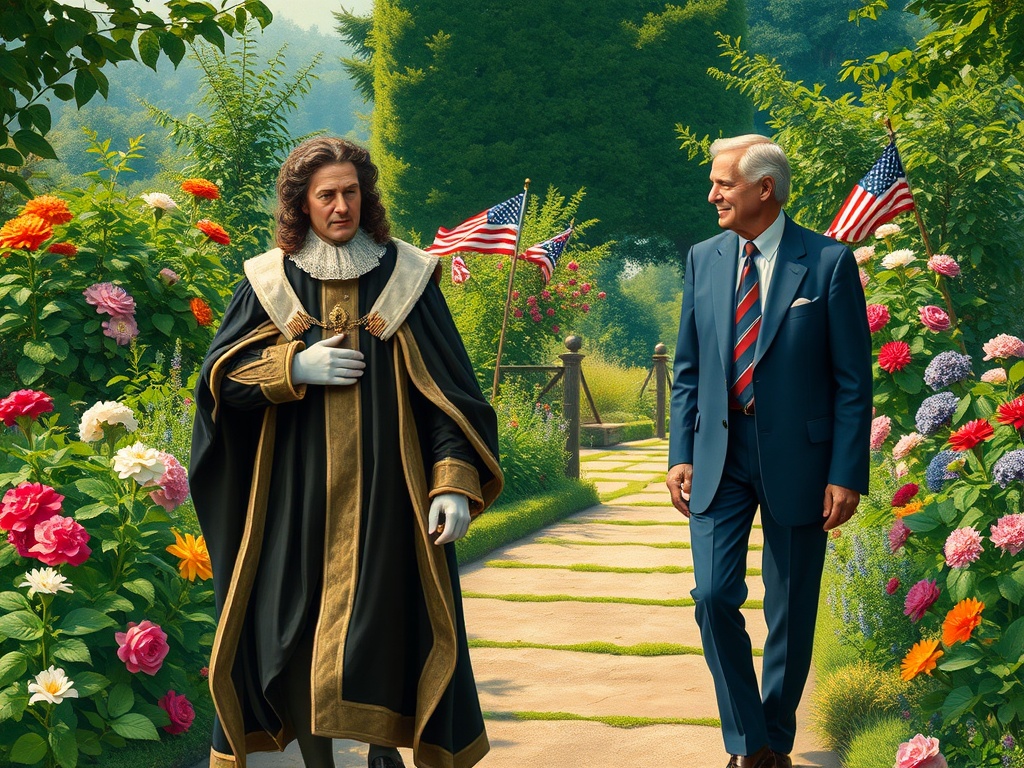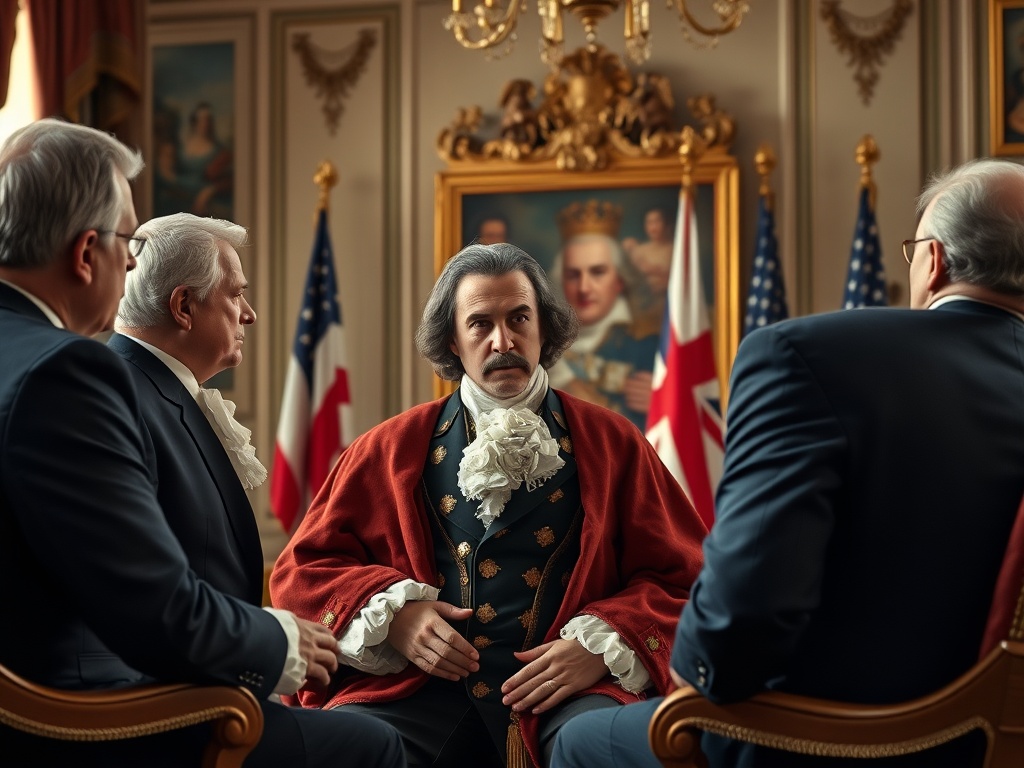The Complex Diplomatic Landscape for King Charles III
In the shifting dynamics of global politics, King Charles III finds himself navigating a precarious situation in the wake of Donald Trump’s unprecedented approach to Ukraine’s President Volodymyr Zelensky. The long-standing assumptions that characterized the relationship between Britain and the United States are now called into question. Despite historical tensions in the so-called “special relationship,” both officials within Sir Keir Starmer’s government and Buckingham Palace remain hopeful that Britain and the US will continue as NATO allies.
Next year marks the 250th anniversary of American independence, and it is anticipated that the King will be called upon to foster goodwill with the US President through celebratory events. A state visit by King Charles and Queen Camilla to the United States is under consideration for 2026, potentially coinciding with the King’s inaugural trip to Canada as the reigning monarch.
At 76, Charles has a long-standing acquaintance with Trump, having maintained correspondence with him and his family over the years. British government ministers are optimistic that Trump’s admiration for the Royal Family could serve as a crucial diplomatic lever, enhancing British influence on the President in an era where traditional norms and agreements seem increasingly obsolete.
However, the prospect of charming a populist leader such as Trump presents a moral dilemma for the King, who has been vocal about his disdain for Vladimir Putin. Since 2014, Charles has openly criticized the Russian leader, famously likening him to Adolf Hitler during a state visit to Canada, following Russia’s initial invasion of Ukraine and subsequent annexation of Crimea. His off-the-cuff remarks stirred diplomatic controversy, reflecting his strong stance against authoritarianism.
On the second anniversary of the Russian invasion on February 24, the King publicly commended the bravery of the Ukrainian people in the face of what he termed an “unprovoked attack.” He expressed, “Theirs is true valour, in the face of indescribable aggression,” highlighting his personal interactions with Ukrainians, including President Zelensky and military recruits training in the UK.
As the King contemplates engaging with a US President who has recently attempted to downplay Russia’s role as the aggressor, the challenge becomes clearer. Dickie Arbiter, a former palace press secretary, noted the King’s probable frustration with current events. Arbiter recalled how, as Prince of Wales, Charles boycotted a state banquet for China’s President Jiang Zemin in 1999 due to human rights violations, missing similar events in 2005 and 2015.
“However, as head of state, he will likely adhere to the government’s wishes,” Arbiter remarked, drawing parallels to Queen Elizabeth II’s obligation to host controversial figures like Uganda’s Idi Amin and Romania’s Nicolae Ceaușescu during her reign.
Historically, the Royal Family has played a pivotal role in diplomatic relations with the US, with Trump previously expressing fondness for the late Queen following his 2019 state visit. Catherine Mayer, a biographer of Charles, pointed out that even the late Queen refrained from extending holiday greetings to Amin or inviting him to her celebrations, emphasizing the heightened sensitivity surrounding current global leaders.
Mayer remarked, “The King has been unfortunate with the timing of his reign. Had he ascended the throne a few years earlier, he would have operated in a more unified international atmosphere.” Nevertheless, the significance of maintaining ties with the US remains paramount, with a plethora of philanthropic billionaires in the US eager to support royal charitable initiatives.
The Importance of Diplomatic Engagement

Dr. Leslie Vinjamuri, director of the US and the Americas program at Chatham House, asserted that it is crucial for the Prime Minister to engage with President Trump, ideally through an official state visit to the UK. “A divorce between the US and Europe would yield little benefit. The UK has a vital role in ensuring that both the UK-US relationship and the broader ties between the US and Europe remain intact,” she emphasized.
The historical context of the UK-US relationship began to solidify in the late 19th century, with a notable turning point occurring in June 1939 when King George VI and Queen Elizabeth made an unprecedented visit to the US. This visit generated immense public interest and laid the groundwork for a cooperative alliance during World War II, as the royal couple successfully engaged President Franklin Delano Roosevelt for American support against Nazi Germany.
Carolyn Harris, a historian and royal commentator, pointed out that King George VI’s trip was notable for its political implications, as he was accompanied by Canadian Prime Minister William Lyon Mackenzie King rather than a British politician. Harris suggested that a royal tour of Canada followed by a US state visit could be equally crucial today, given the current global turmoil and Trump’s aggressive posturing towards trade and territorial expansion.
“There are striking parallels with the 1939 visit,” she noted, positing that the King could serve as a conciliatory voice for both nations in his dealings with Trump. However, the current political climate presents a challenge, as Trump is not seen as a Roosevelt seeking international collaboration.
Arbiter raised concerns about the logistics of combining visits to Canada and the US, warning that prioritizing a trip to Canada could provoke a negative reaction from Trump. Conversely, Robert Finch, chairman of the Monarchist League of Canada, argued that a visit to the US first would be poorly received in Canada. He suggested that the King and Queen arriving in Washington on a Royal Canadian Air Force jet would send a strong message about international solidarity amid Trump’s provocations.
Charles has not visited Canada since his ascension to the throne, and given that 2024 will be an election year, the likelihood of such a trip this year appears slim. Finch emphasized the importance of a more extensive royal tour across Canada, stating, “The next visit must encompass every region, as this will be Canadians’ first opportunity to see their monarch.”
Recent polls indicate that over half of Canadians are in favor of abolishing the monarchy, although it is not a pressing concern for most. Interestingly, Trump’s recent remarks have fostered a renewed sense of national identity, leading to increased support for the monarchy and boosting the Monarchist League’s membership by approximately 1,000 to around 10,000. “In this context, he is beneficial for our cause,” Finch concluded.
Despite the complexities of the current political landscape, the royal family’s role in fostering diplomatic relations remains as significant as ever, necessitating careful navigation in uncertain times.




